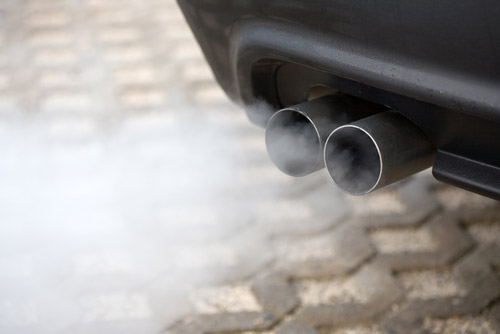
One Device That Should be in Every Attached Garage: A CO Detector
Carbon monoxide (CO) is a deadly, colorless, odorless, poisonous gas that is produced by the incomplete burning of various fuels, including coal, wood, charcoal, oil, kerosene, propane, and natural gas. Products and equipment powered by internal combustion engines such as portable generators, cars, lawn mowers, and power washers also produce CO. In the home, some common sources of CO include open flames, space heaters, water heaters, blocked chimneys or running a car inside a garage.
On average, about 170 people die each year in the US from carbon monoxide poisoning produced by non-automotive consumer products, typically from malfunctioning fuel-burning appliances such as furnaces, ranges, water heaters and room heaters; engine-powered equipment such as portable generators; fireplaces; and charcoal that is burned in homes and other enclosed areas. The susceptibility of CO poisoning is increased during power outages if these appliances or devices are not able to operate correctly or are not used correctly. The Centers for Disease Control and Prevention estimates that several thousand people go to hospital emergency rooms every year to be treated for CO poisoning.

Because many garages contain fuel-burning appliances that provide hot water or heat the home, dwellings with attached garages should be outfitted with CO detecting devices to warn the owner before potentially life-threatening levels of CO are reached.
These devices, which retail for $15–$150USD and are widely available, can either be battery-operated or AC powered (with or without a battery backup). Battery lifetimes have been increasing as the technology has developed and certain battery powered devices now advertise a battery lifetime of over 6 years. Install a CO alarm that meets the requirements of the current UL 2034 safety standard. You can shop for a CO detector here.